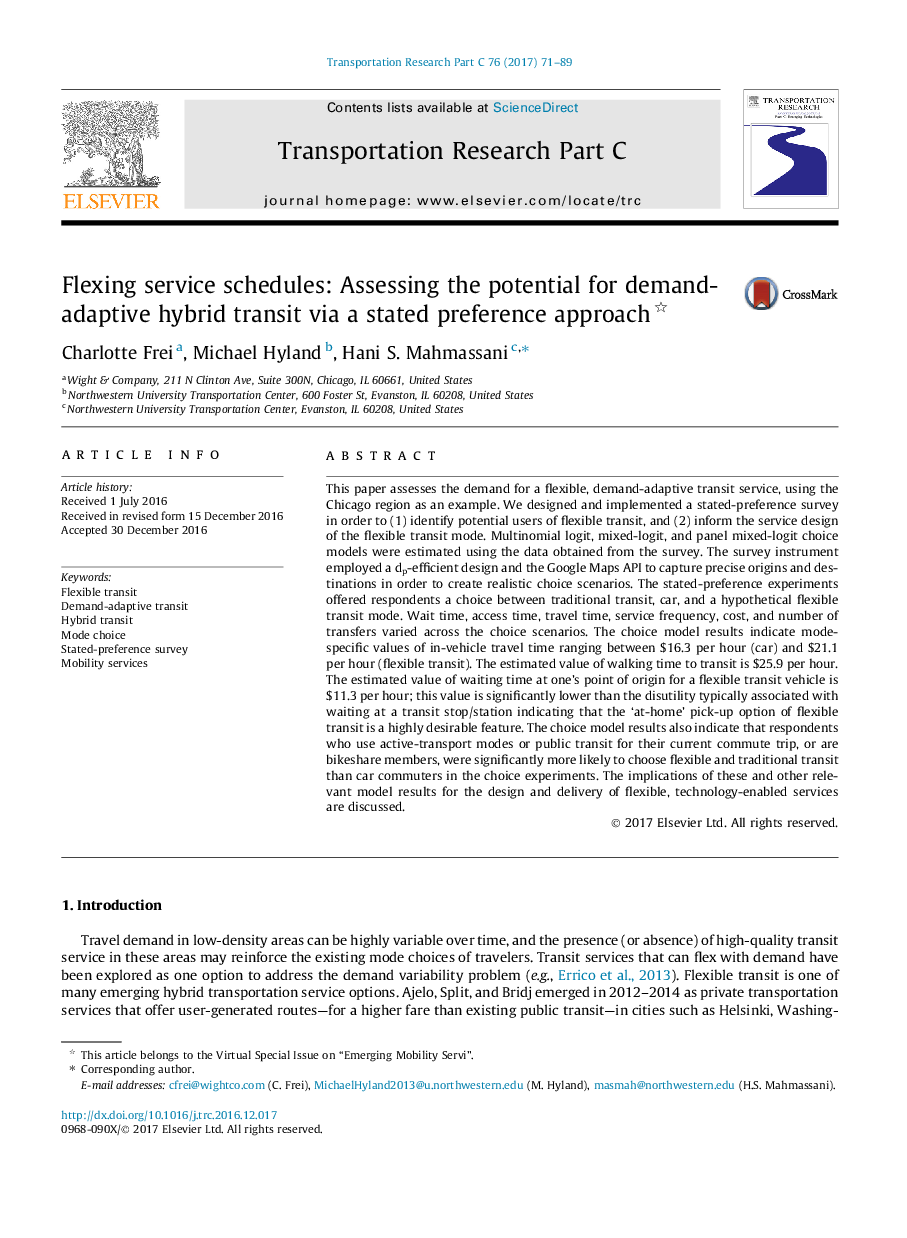| Article ID | Journal | Published Year | Pages | File Type |
|---|---|---|---|---|
| 4968520 | Transportation Research Part C: Emerging Technologies | 2017 | 19 Pages |
Abstract
This paper assesses the demand for a flexible, demand-adaptive transit service, using the Chicago region as an example. We designed and implemented a stated-preference survey in order to (1) identify potential users of flexible transit, and (2) inform the service design of the flexible transit mode. Multinomial logit, mixed-logit, and panel mixed-logit choice models were estimated using the data obtained from the survey. The survey instrument employed a dp-efficient design and the Google Maps API to capture precise origins and destinations in order to create realistic choice scenarios. The stated-preference experiments offered respondents a choice between traditional transit, car, and a hypothetical flexible transit mode. Wait time, access time, travel time, service frequency, cost, and number of transfers varied across the choice scenarios. The choice model results indicate mode-specific values of in-vehicle travel time ranging between $16.3 per hour (car) and $21.1 per hour (flexible transit). The estimated value of walking time to transit is $25.9 per hour. The estimated value of waiting time at one's point of origin for a flexible transit vehicle is $11.3 per hour; this value is significantly lower than the disutility typically associated with waiting at a transit stop/station indicating that the 'at-home' pick-up option of flexible transit is a highly desirable feature. The choice model results also indicate that respondents who use active-transport modes or public transit for their current commute trip, or are bikeshare members, were significantly more likely to choose flexible and traditional transit than car commuters in the choice experiments. The implications of these and other relevant model results for the design and delivery of flexible, technology-enabled services are discussed.
Keywords
Related Topics
Physical Sciences and Engineering
Computer Science
Computer Science Applications
Authors
Charlotte Frei, Michael Hyland, Hani S. Mahmassani,
